There are treatments for many types of cancer, but many come with uncomfortable side effects. New studies on vitamin C and cancer suggest that this vitamin may offer hope as a safe and natural adjunct treatment.
Cancer is one of the leading causes of death in the world, killing nine million people per year around the globe. While there are many treatments that can cure or slow the progression of this disease, these can have debilitating side effects such as weight loss, hair loss, nausea, vomiting or even death. Around 40 percent of us will have cancer of some kind before we die, which means that many who are reading this now will one day have to experience some of these unpleasant cancer treatment side effects. However, new research indicates that vitamin C may be a safe, natural way to make traditional cancer treatments more effective and even help fight cancer on its own.
Benefits of Vitamin C
Long ago, sea captains noted that giving sailors limes prevented the development of scurvy and other serious diseases. Today we know that this is due to vitamin C. We also know that this vitamin has a long list of health benefits in addition to preventing scurvy. It is an important cofactor in a variety of crucial biochemical reactions and also acts as an antioxidant. Vitamin C is necessary to form healthy collagen, an ingredient in our skin and bones, as well as to make our stress hormones. Because it is a water-soluble vitamin, it is not toxic at any level. While people who take too much of it may experience some diarrhea, it is impossible to overdose even when taking super-doses. The half-life of the vitamin is simply too short for toxic levels to build up.
More recent research suggests that this vitamin may be important in more than merely preventative roles. It has been found to lower the incidence of death from cardiovascular disease. In large doses given by IV, it may also improve the outcomes of cancer treatment.
Vitamin C and Cancer Cells
Nobel prize winner Linus Pauling long ago hypothesized that vitamin C may be able to benefit those with cancer. New research suggests that he was correct. When cancer patients were given megadoses of this vitamin in addition to taking the prescribed radiation and/or chemotherapy, they had fewer side effects and better outcomes. In fact, patients with glioblastoma, a deadly brain cancer, survived four to six months longer.
This is not the first study to find that there is a therapeutic benefit to taking high doses of vitamin C and cancer treatments at the same time. A previous study found that people who took vitamin C while being treated for ovarian cancer suffered fewer side effects and had less toxicity to their organs. Researchers believe that this is due to several factors. First, because vitamin C is an antioxidant and also part of several key enzymatic reactions, having an ample supply ensures that healthy cells can recover more quickly from side effects of cancer treatment. Second, vitamin C appears to have a negative effect on the mitochondria of cancer cells, shutting down metabolism while creating free radicals that eventually kill the cell. This process specifically targets cancer and cancer stem cells, which can help both in treatment and in slowing the metastasis of this disease.
While more studies will need to be performed in order to understand exactly why vitamin C affects cancer treatment and how much is needed, it currently appears that this vitamin may have real benefits. This brings up the question: Can getting enough vitamin C help to protect against cancer?
Are You Getting Enough Vitamin C?
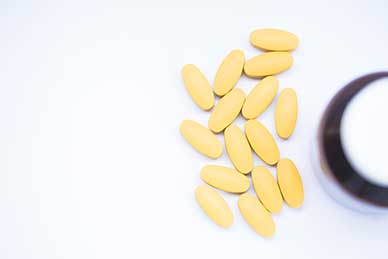 There is currently no known connection between vitamin C deficiency and higher rates of cancer. However, this topic has yet to be studied extensively. It intuitively makes sense that getting enough of a cancer-fighting antioxidant may help to prevent cancer from developing in the first place. Because getting enough vitamin C is crucial to health in a variety of ways, many doctors recommend that people either take a vitamin supplement or eat plenty of the following foods:
There is currently no known connection between vitamin C deficiency and higher rates of cancer. However, this topic has yet to be studied extensively. It intuitively makes sense that getting enough of a cancer-fighting antioxidant may help to prevent cancer from developing in the first place. Because getting enough vitamin C is crucial to health in a variety of ways, many doctors recommend that people either take a vitamin supplement or eat plenty of the following foods:
- oranges and other citrus fruit
- leafy green vegetables such as spinach and kale
- chili peppers
- bell peppers
- cruciferous vegetables such as broccoli, cauliflower and Brussels sprouts
- papayas, pineapple, mangoes and other tropical fruits
- strawberries
These foods are all delicious parts of a healthy diet, so it is easy to get enough vitamin C to support good health with a little effort.
While modern medicine has brought us many benefits, natural remedies and good nutrition also play an important role in promoting good health. Getting enough vitamin C and other nutrients likely has benefits that we do not even know about yet. Eating a well-rounded diet and taking natural supplements are two of the most important ways that you can stay healthy both now and in the future.
 Resveratrol has recently become popular due to its
Resveratrol has recently become popular due to its 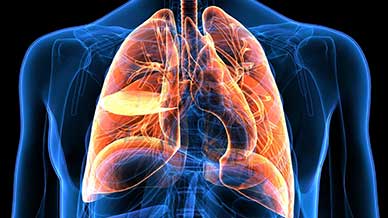 How can a simple grape extract help promote healthy respiratory aging and protect against certain lung concerns? The antioxidant effects of resveratrol are believed to be one of its major benefits. In one study, when mice were given inhaled resveratrol, they saw
How can a simple grape extract help promote healthy respiratory aging and protect against certain lung concerns? The antioxidant effects of resveratrol are believed to be one of its major benefits. In one study, when mice were given inhaled resveratrol, they saw 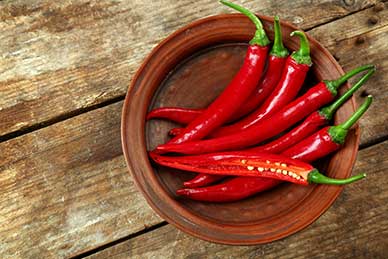 Capsaicin, the molecule that makes chili peppers spicy, appears to have a variety of benefits in sustaining healthy cell growth. When this compound is added to petri dishes containing
Capsaicin, the molecule that makes chili peppers spicy, appears to have a variety of benefits in sustaining healthy cell growth. When this compound is added to petri dishes containing 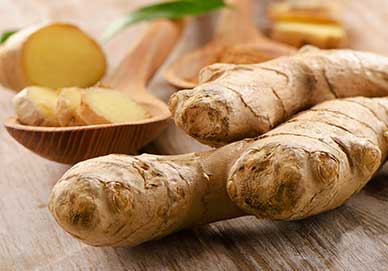 If you wish to get more capsaicin and ginger in your diet for the health effects of these spices, there are a variety of options. Ginger is a common spice used in Asian foods as well as those from a variety of places. However, if you do not appreciate a spicy curry, ginger is also used in a wide range of traditional Western desserts such as gingerbread. Capsaicin can be more difficult for picky eaters to incorporate into their diets. It is present mainly in hot peppers such as jalapenos and habaneros, giving these peppers their heat and bite.
If you wish to get more capsaicin and ginger in your diet for the health effects of these spices, there are a variety of options. Ginger is a common spice used in Asian foods as well as those from a variety of places. However, if you do not appreciate a spicy curry, ginger is also used in a wide range of traditional Western desserts such as gingerbread. Capsaicin can be more difficult for picky eaters to incorporate into their diets. It is present mainly in hot peppers such as jalapenos and habaneros, giving these peppers their heat and bite.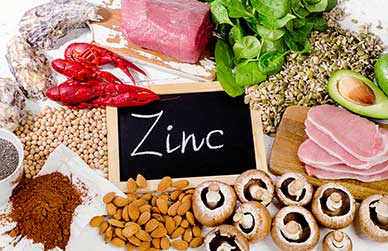 Ultimately, a healthy body requires a variety of different nutrients to achieve optimal health. However, the Western diet tends to be deficient in these nutrients, contributing to the epidemic of chronic disease that currently is overtaking many developed nations. While we have ample access to a variety of foods, many people cannot or simply do not get the zinc they need to protect their DNA.
Ultimately, a healthy body requires a variety of different nutrients to achieve optimal health. However, the Western diet tends to be deficient in these nutrients, contributing to the epidemic of chronic disease that currently is overtaking many developed nations. While we have ample access to a variety of foods, many people cannot or simply do not get the zinc they need to protect their DNA. Iron plays
Iron plays  If you believe that you are suffering from a deficiency of iron, there are several ways to quickly build up healthy levels of this vitamin. Many people simply add more iron-rich foods to their diets and take care to eat vegetarian sources of iron with an acidic food such as lemon. However, it can be difficult to get the iron that you need from diet alone, especially for women of reproductive age and young children who are growing quickly. For these people, taking an iron supplement or a
If you believe that you are suffering from a deficiency of iron, there are several ways to quickly build up healthy levels of this vitamin. Many people simply add more iron-rich foods to their diets and take care to eat vegetarian sources of iron with an acidic food such as lemon. However, it can be difficult to get the iron that you need from diet alone, especially for women of reproductive age and young children who are growing quickly. For these people, taking an iron supplement or a 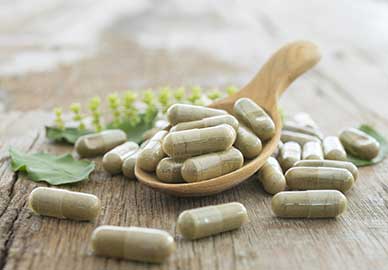 According to new research, a vitamin B12 deficiency during pregnancy may have more effects than previously realized. Even babies who are born appearing to be in good health may suffer the consequences over their lifetimes. In one study, vitamin B12 levels were measured in pregnant women and both their and their babies’ health was analyzed. Babies born to mothers with a B12 deficiency had
According to new research, a vitamin B12 deficiency during pregnancy may have more effects than previously realized. Even babies who are born appearing to be in good health may suffer the consequences over their lifetimes. In one study, vitamin B12 levels were measured in pregnant women and both their and their babies’ health was analyzed. Babies born to mothers with a B12 deficiency had